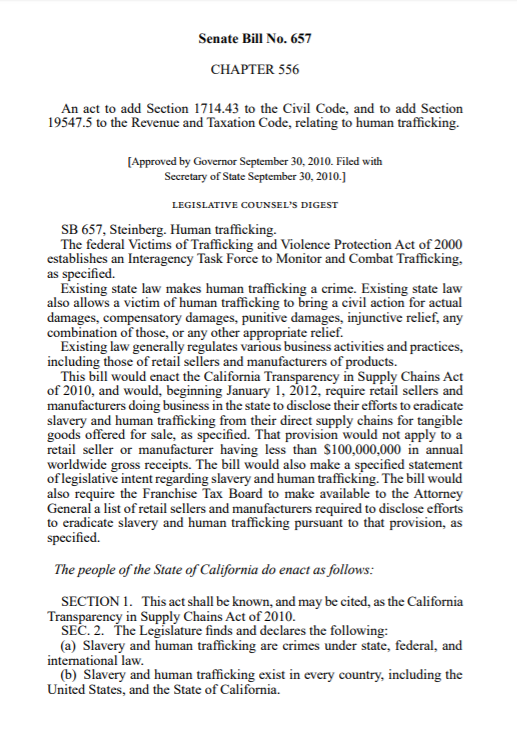Child Labour Due Diligence Law [‘Wet Zorgplicht Kinderarbeid’]
LegislationOn February 7, 2017 the Child Labour Due Diligence Law [‘Wet Zorgplicht Kinderarbeid’], initiated by member Van Laar (Labour Party), was adopted by the Dutch Parliament. The law requires companies to examine whether child labour occurs in thei...Read More

